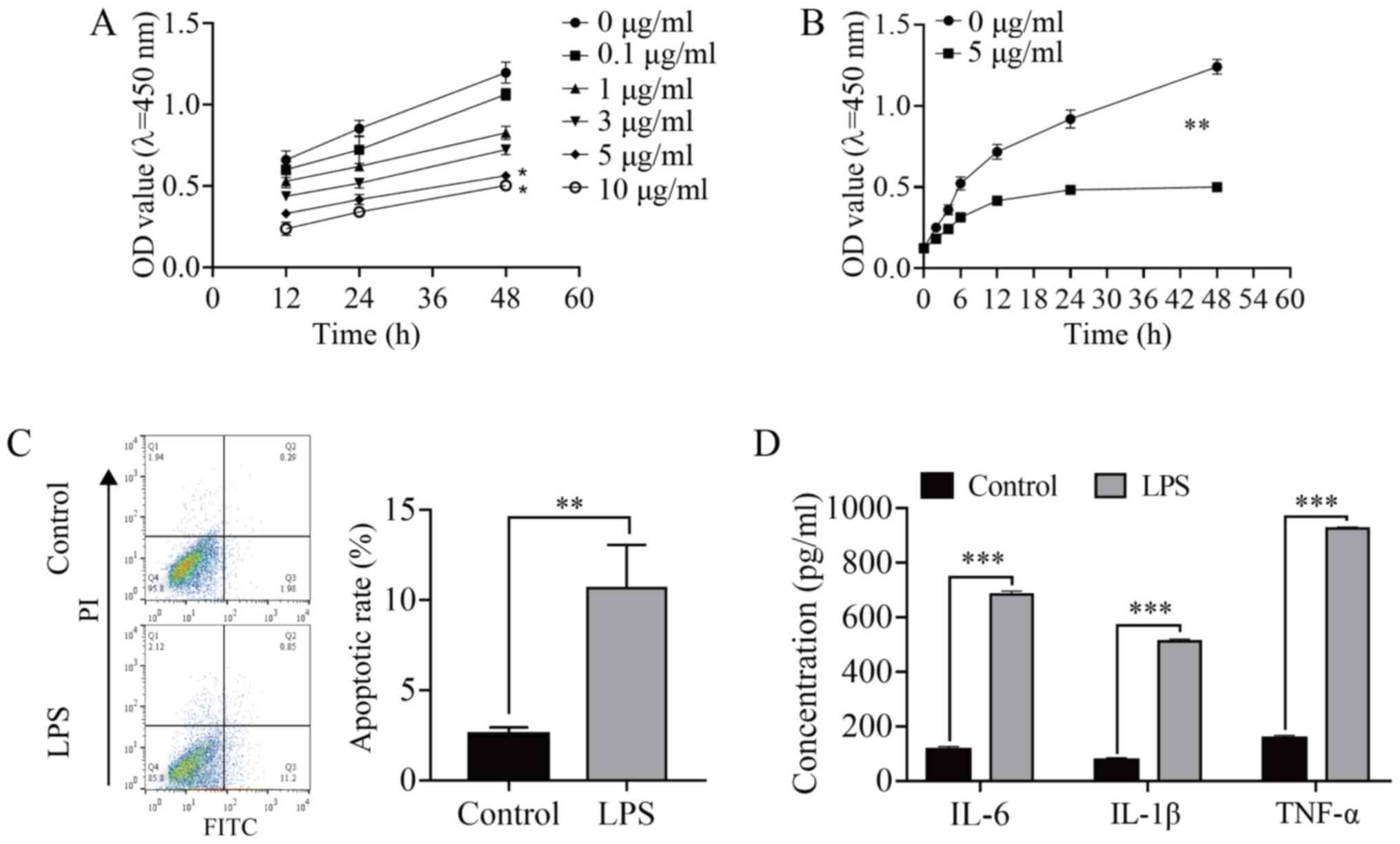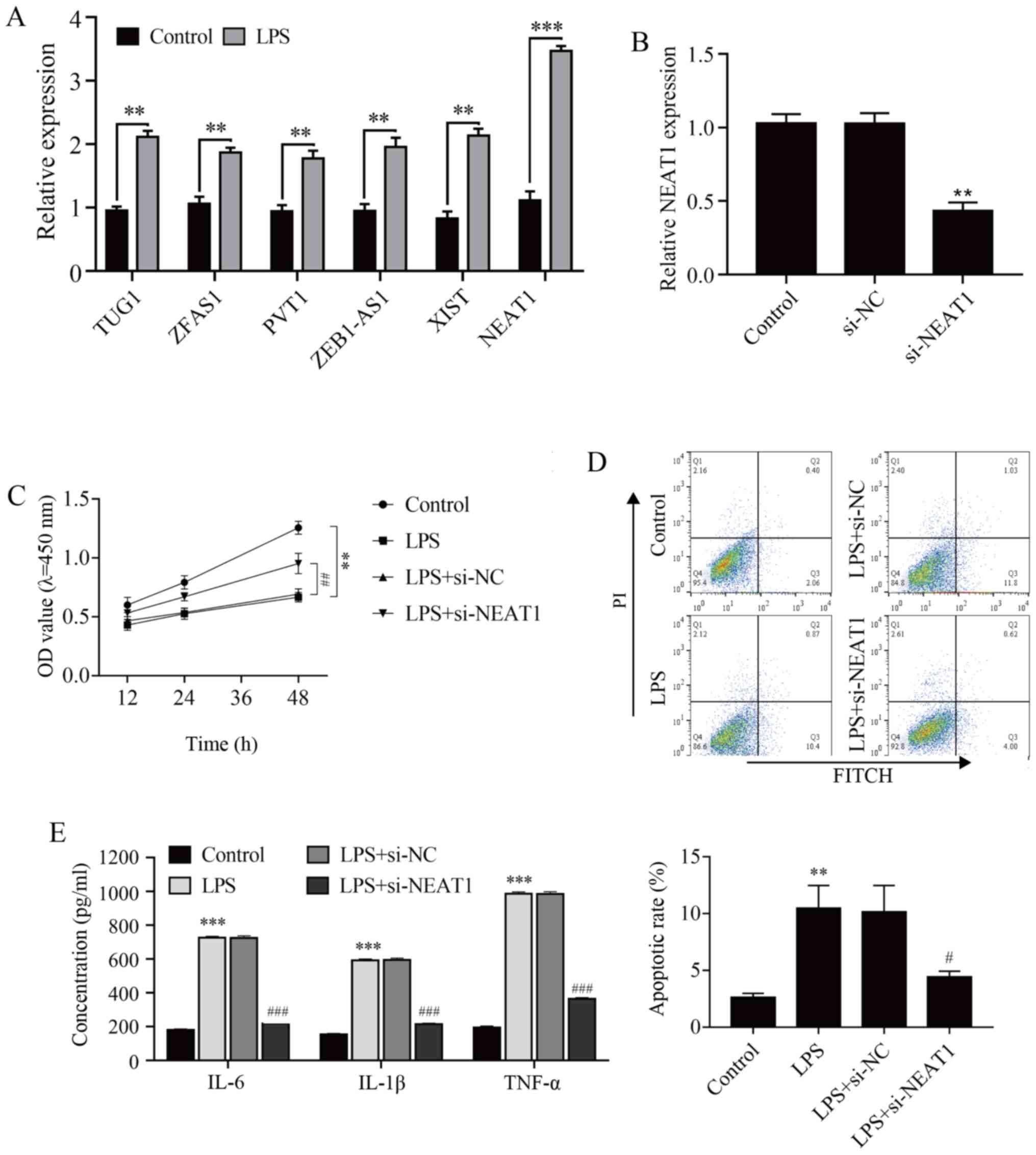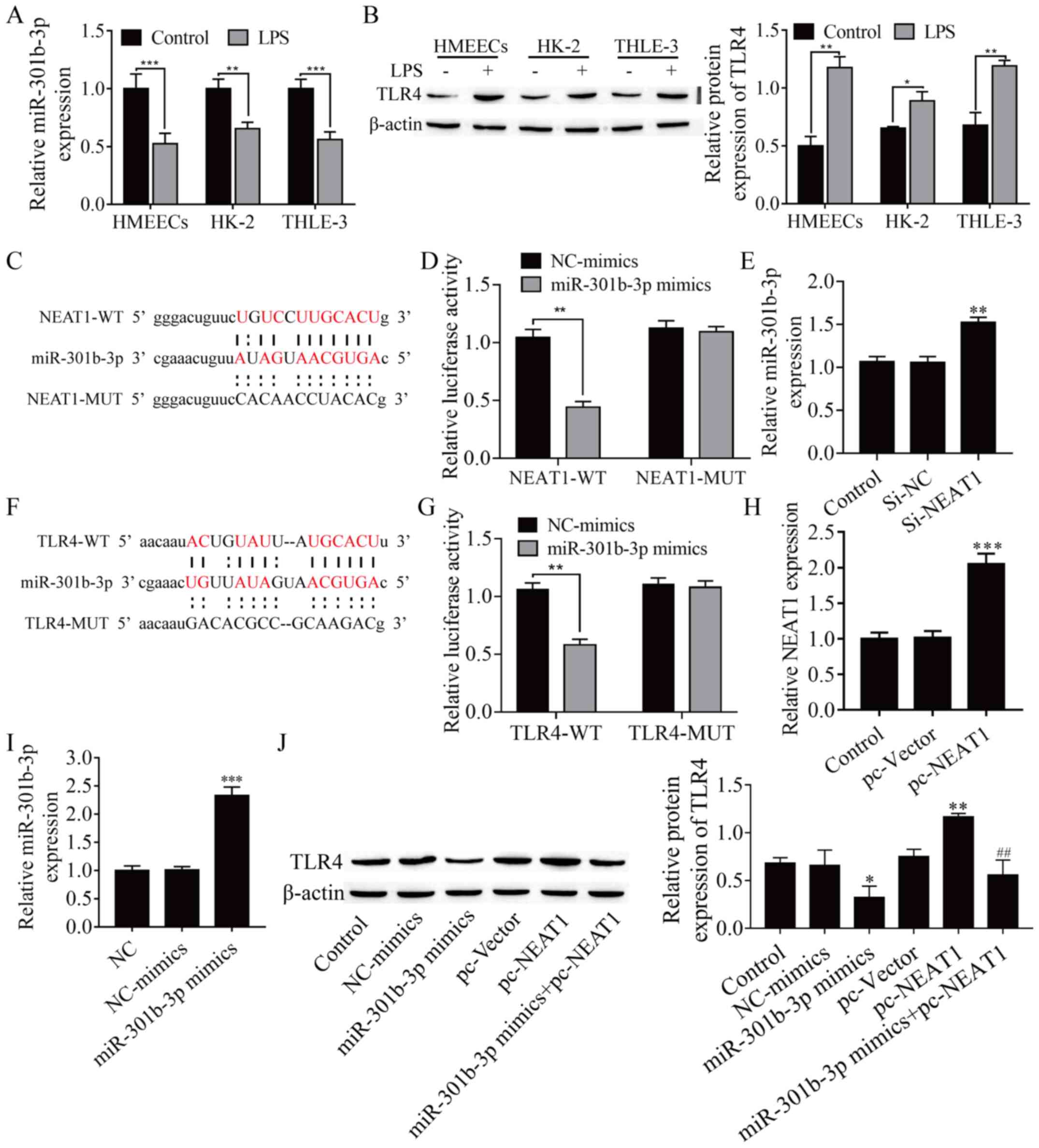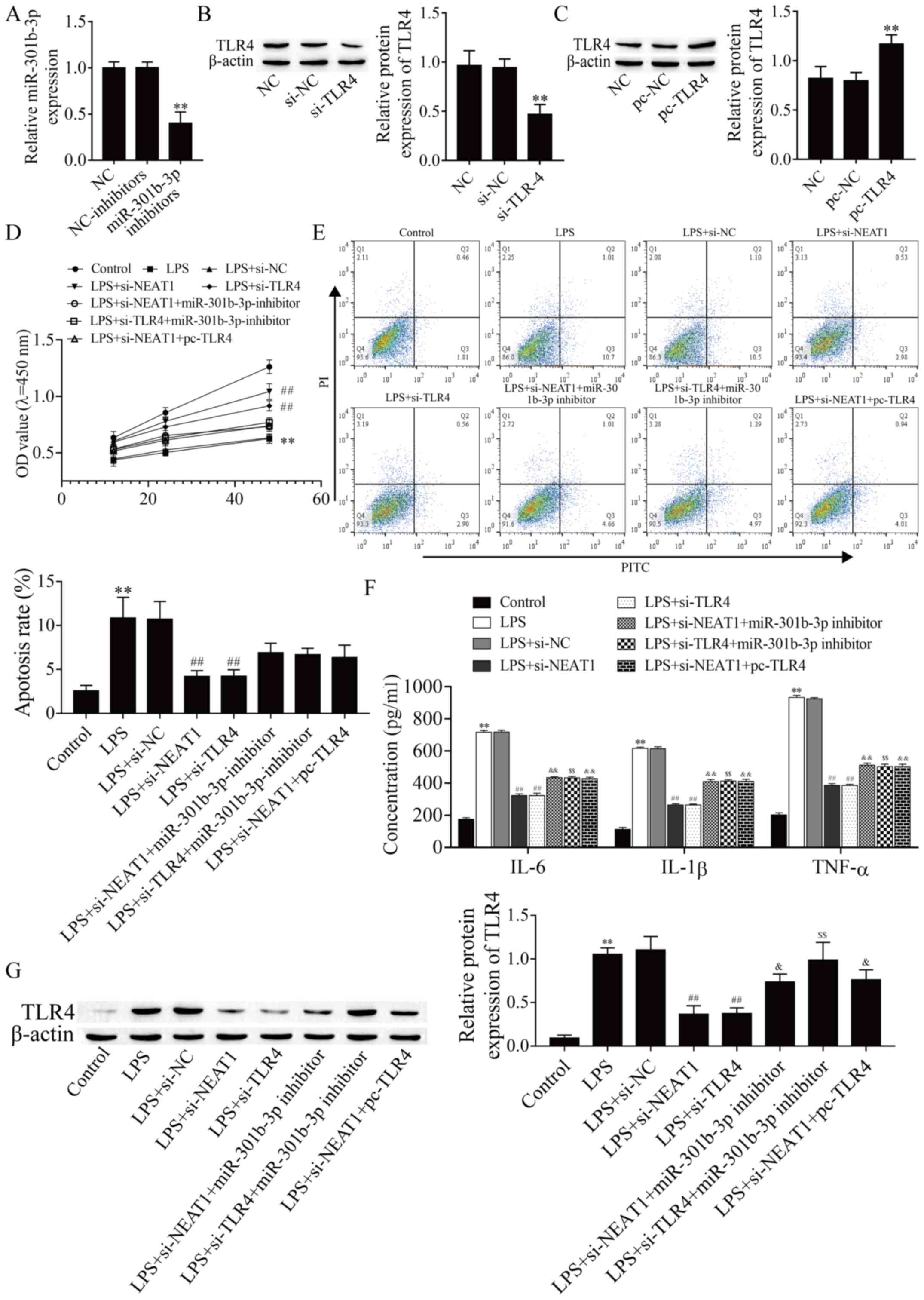|
1
|
Morris LM, DeGagne JM, Kempton JB, Hausman
F and Trune DR: Mouse middle ear ion homeostasis channels and
intercellular junctions. PLoS One. 7(e39004)2012.PubMed/NCBI View Article : Google Scholar
|
|
2
|
Block SL: Causative pathogens, antibiotic
resistance and therapeutic considerations in acute otitis media.
Pediatr Infect Dis J. 16:449–456. 1997.PubMed/NCBI View Article : Google Scholar
|
|
3
|
Post JC: Direct evidence of bacterial
biofilms in otitis media 2001. Laryngoscope. 125:2003–2014.
2015.PubMed/NCBI View Article : Google Scholar
|
|
4
|
Topcuoglu N, Keskin F, Ciftci S, Paltura
C, Kulekci M, Ustek D and Kulekci G: Relationship between oral
anaerobic bacteria and otitis media with effusion. Int J Med Sci.
9:256–261. 2012.PubMed/NCBI View Article : Google Scholar
|
|
5
|
Beermann J, Piccoli MT, Viereck J and Thum
T: Non-coding RNAs in development and disease: Background,
mechanisms, and therapeutic approaches. Physiol Rev. 96:1297–1325.
2016.PubMed/NCBI View Article : Google Scholar
|
|
6
|
Curtale G and Citarella F: Dynamic nature
of noncoding RNA regulation of adaptive immune response. Int J Mol
Sci. 14:17347–17377. 2013.PubMed/NCBI View Article : Google Scholar
|
|
7
|
Wang J, Lucas BA and Maquat LE: New gene
expression pipelines gush lncRNAs. Genome Biol.
14(117)2013.PubMed/NCBI View Article : Google Scholar
|
|
8
|
Zhang Y, Zhu Y, Gao G and Zhou Z:
Knockdown XIST alleviates LPS-induced WI-38 cell apoptosis and
inflammation injury via targeting miR-370-3p/TLR4 in acute
pneumonia. Cell Biochem Funct. 37:348–358. 2019.PubMed/NCBI View
Article : Google Scholar
|
|
9
|
Liang WJ, Zeng XY, Jiang SL, Tan HY, Yan
MY and Yang HZ: Long non-coding RNA MALAT1 sponges miR-149 to
promote inflammatory responses of LPS-induced acute lung in-jury by
targeting MyD88. Cell Biol Int. 44:317–326. 2020.PubMed/NCBI View Article : Google Scholar
|
|
10
|
Gomez JA, Wapinski OL, Yang YW, Bureau JF,
Gopinath S, Monack DM, Chang HY, Brahic M and Kirkegaard K: The
NeST long ncRNA controls microbial susceptibility and epigenetic
activation of the interferon-γ locus. Cell. 152:743–754.
2013.PubMed/NCBI View Article : Google Scholar
|
|
11
|
Pawar K, Hanisch C, Palma Vera SE,
Einspanier R and Sharbati S: Down regulated lncRNA MEG3 eliminates
mycobacteria in macrophages via autophagy. Sci Rep.
6(19416)2016.PubMed/NCBI View Article : Google Scholar
|
|
12
|
Wang Y, Zhong H, Xie X, Chen CY, Huang D,
Shen L, Zhang H, Chen ZW and Zeng G: Long noncoding RNA derived
from CD244 signaling epigenetically controls CD8+ T-cell
immune responses in tuberculosis infection. Proc Natl Acad Sci USA.
112:E3883–E3892. 2015.PubMed/NCBI View Article : Google Scholar
|
|
13
|
Shen X, Zhao W, Zhang Y and Liang B: Long
non-coding RNA-NEAT1 promotes cell migration and invasion via
regulating miR-124/NF-κB pathway in cervical cancer. OncoTargets
Ther. 13:3265–3276. 2020.PubMed/NCBI View Article : Google Scholar
|
|
14
|
Chen XX, Jiang YJ, Zeng T and Li JJ:
Overexpression of the long noncoding RNA NEAT1 pro-tects against
As2O3-induced injury of cardiomyocyte by
inhibiting the miR-124/NF-κB signaling pathway. Eur Rev Med
Pharmacol Sci. 24:1378–1390. 2020.PubMed/NCBI View Article : Google Scholar
|
|
15
|
Nong W: Long non-coding RNA
NEAT1/miR-193a-3p regulates LPS-induced apoptosis and inflammatory
injury in WI-38 cells through TLR4/NF-κB signaling. Am J Transl
Res. 11:5944–5955. 2019.PubMed/NCBI
|
|
16
|
Ma J, Zhao N, Du L and Wang Y:
Downregulation of lncRNA NEAT1 inhibits mouse mesangial cell
proliferation, fibrosis, and inflammation but promotes apoptosis in
diabetic nephropathy. Int J Clin Exp Pathol. 12:1174–1183.
2019.PubMed/NCBI
|
|
17
|
Jin SS, Lin XF, Zheng JZ, Wang Q and Guan
HQ: lncRNA NEAT1 regulates fibrosis and inflammatory response
induced by nonalcoholic fatty liver by regulating miR-506/GLI3. Eur
Cytokine Netw. 30:98–106. 2019.PubMed/NCBI View Article : Google Scholar
|
|
18
|
Wang W and Guo Z: Downregulation of lncRNA
NEAT1 ameliorates LPS-induced inflammatory responses by promoting
macrophage M2 polarization via miR-125a-5p/TRAF6/TAK1 axis.
Inflammation. 43:1548–1560. 2020.PubMed/NCBI View Article : Google Scholar
|
|
19
|
Zhou X, Jeker LT, Fife BT, Zhu S, Anderson
MS, McManus MT and Bluestone JA: Selective miRNA disruption in T
reg cells leads to uncontrolled autoimmunity. J Exp Med.
205:1983–1991. 2008.PubMed/NCBI View Article : Google Scholar
|
|
20
|
Song JJ, Kwon SK, Cho CG, Park SW and Chae
SW: Microarray analysis of microRNA expression in LPS induced
inflammation of human middle ear epithelial cells (HMEECs). Int J
Pediatr Otorhinolaryngol. 75:648–651. 2011.PubMed/NCBI View Article : Google Scholar
|
|
21
|
Hwang HW and Mendell JT: MicroRNAs in cell
proliferation, cell death, and tumorigenesis. Br J Cancer. 96
(Suppl):R40–R44. 2007.PubMed/NCBI
|
|
22
|
Wree A, McGeough MD, Inzaugarat ME, Eguchi
A, Schuster S, Johnson CD, Peña CA, Geis-ler LJ, Papouchado BG,
Hoffman HM, et al: NLRP3 inflammasome driven liver injury and
fibrosis: Roles of IL-17 and TNF in mice. Hepatology. 67:736–749.
2018.PubMed/NCBI View Article : Google Scholar
|
|
23
|
Wang YC, Wang PF, Fang H, Chen J, Xiong XY
and Yang QW: Toll-like receptor 4 antagonist attenuates
intracerebral hemorrhage-induced brain injury. Stroke.
44:2545–2552. 2013.PubMed/NCBI View Article : Google Scholar
|
|
24
|
Hirano T, Kodama S, Fujita K, Maeda K and
Suzuki M: Role of Toll-like receptor 4 in innate immune responses
in a mouse model of acute otitis media. FEMS Immunol Med Microbiol.
49:75–83. 2007.PubMed/NCBI View Article : Google Scholar
|
|
25
|
Leichtle A, Hernandez M, Pak K, Yamasaki
K, Cheng CF, Webster NJ, Ryan AF and Wasser-man SI: TLR4-mediated
induction of TLR2 signaling is critical in the pathogenesis and
resolution of otitis media. Innate Immun. 15:205–215.
2009.PubMed/NCBI View Article : Google Scholar
|
|
26
|
Li P, Chen D and Huang Y: Fisetin
administration improves LPS-induced acute otitis media in mouse
in vivo. Int J Mol Med. 42:237–247. 2018.PubMed/NCBI View Article : Google Scholar
|
|
27
|
Guo H, Li M and Xu LJ: Apigetrin treatment
attenuates LPS-induced acute otitis media though suppressing
inflammation and oxidative stress. Biomed Pharmacother.
109:1978–1987. 2019.PubMed/NCBI View Article : Google Scholar
|
|
28
|
Livak KJ and Schmittgen TD: Analysis of
relative gene expression data using real-time quantitative PCR and
the 2(-Delta Delta C(T)) Method. Methods. 25:402–408.
2001.PubMed/NCBI View Article : Google Scholar
|
|
29
|
Ma YK, Chen YB and Li P: Quercetin
inhibits NTHi-triggered CXCR4 activation through suppressing
IKKα/NF-κB and MAPK signaling pathways in otitis media. Int J Mol
Med. 42:248–258. 2018.PubMed/NCBI View Article : Google Scholar
|
|
30
|
Li GD, Li TL, Liu H and Sun L: Correlation
between recovery time of extended high-frequency audiometry and
duration of inflammation in patients with acute otitis media. Eur
Arch Otorhinolaryngol. 277:2447–2453. 2020.PubMed/NCBI View Article : Google Scholar
|
|
31
|
Zhang J, Xu M, Zheng Q, Zhang Y, Ma W and
Zhang Z: Blocking macrophage migration inhibitory factor activity
alleviates mouse acute otitis media in vivo. Immunol Lett.
162A:101–108. 2014.PubMed/NCBI View Article : Google Scholar
|
|
32
|
Tuoheti A, Gu X, Cheng X and Zhang H:
Silencing Nrf2 attenuates chronic suppurative otitis media by
inhibiting pro-inflammatory cytokine secretion through
up-regulating TLR4. Innate Immun. 27:70–80. 2021.PubMed/NCBI View Article : Google Scholar
|
|
33
|
Wang Z, Hao J and Chen D: Long noncoding
RNA nuclear enriched abundant transcript 1(NEAT1) regulates
proliferation, apoptosis, and inflammation of chondrocytes via the
miR-181a/glycerol-3-phosphate dehydrogenase 1-like (GPD1L) axis.
Med Sci Monit. 25:8084–8094. 2019.PubMed/NCBI View Article : Google Scholar
|
|
34
|
Yang F, Tang Z, Duan A, Yi B, Shen N, Bo
Z, Yin L, Zhu B, Qiu Y and Li J: Long noncoding RNA NEAT1
upregulates survivin and facilitates gallbladder cancer progression
by sponging microRNA-335. OncoTargets Ther. 13:2357–2367.
2020.PubMed/NCBI View Article : Google Scholar
|
|
35
|
Li Y, Guo W and Cai Y: NEAT1 Promotes
LPS-induced inflammatory injury in macrophages by regulating
miR-17-5p/TLR4. Open Med (Wars). 15:38–49. 2020.PubMed/NCBI View Article : Google Scholar
|
|
36
|
Ren L, Chen S, Liu W, Hou P, Sun W and Yan
H: Downregulation of long non-coding RNA nuclear enriched abundant
transcript 1promotes cell proliferation and inhibits cell apoptosis
by targeting miR-193a in myocardial ischemia/reperfusion injury.
BMC Cardiovasc Disord. 19(192)2019.PubMed/NCBI View Article : Google Scholar
|
|
37
|
Karreth FA and Pandolfi PP: ceRNA
cross-talk in cancer: When ce-bling rivalries go awry. Cancer
Discov. 3:1113–1121. 2013.PubMed/NCBI View Article : Google Scholar
|
|
38
|
Fan H, Jin X, Liao C, Qiao L and Zhao W:
MicroRNA-301b-3p accelerates the growth of gastric cancer cells by
targeting zinc finger and BTB domain containing 4. Pathol Res
Pract. 215(152667)2019.PubMed/NCBI View Article : Google Scholar
|
|
39
|
Guo Y, Yao B, Zhu Q, Xiao Z, Hu L, Liu X,
Li L, Wang J, Xu Q, Yang L, et al: MicroRNA-301b-3p contributes to
tumour growth of human hepatocellular carcinoma by repressing
vestigial like family member 4. J Cell Mol Med. 23:5037–5047.
2019.PubMed/NCBI View Article : Google Scholar
|
|
40
|
Wu CX, Cheng J, Wang YY, Wang JJ, Guo H
and Sun H: Microrna expression profiling of macrophage line
RAW264.7 infected by Candida albicans. Shock:. 47:520–530.
2017.PubMed/NCBI View Article : Google Scholar
|
|
41
|
Li X, He S, Li R, Zhou X, Zhang S, Yu M,
Ye Y, Wang Y, Huang C and Wu M: Pseudomonas aeruginosa
infection augments inflammation through miR-301b repression of
c-Myb-mediated immune activation and infiltration. Nat Microbiol.
1(16132)2016.PubMed/NCBI View Article : Google Scholar
|
|
42
|
Chen Z, Zhang Y, Lin R, Meng X, Zhao W,
Shen W and Fan H: Cronobacter sakazakiiinduces necrotizing
enterocolitis by regulating NLRP3 inflammasome expression via TLR4.
J Med Microbiol. 69:748–758. 2020.PubMed/NCBI View Article : Google Scholar
|
|
43
|
Zhou K, Cui S, Duan W, Zhang J, Huang J,
Wang L, Gong Z and Zhou Y: Cold-inducible RNA-binding protein
contributes to intracerebral hemorrhage-induced brain injury via
TLR4 signaling. Brain Behav. 10(e01618)2020.PubMed/NCBI View Article : Google Scholar
|
|
44
|
Kaur R, Casey J and Pichichero M:
Cytokine, chemokine, and Toll-like receptor expression in middle
ear fluids of children with acute otitis media. Laryngoscope.
125:E39–E44. 2015.PubMed/NCBI View Article : Google Scholar
|
|
45
|
Bartel DP: MicroRNAs: Genomics,
biogenesis, mechanism, and function. Cell. 116:281–297.
2004.PubMed/NCBI View Article : Google Scholar
|
|
46
|
Egawa H, Jingushi K, Hirono T, Ueda Y,
Kitae K, Nakata W, Fujita K, Uemura M, Nonomura N and Tsujikawa K:
The miR-130 family promotes cell migration and invasion in bladder
cancer through FAK and Akt phosphorylation by regulating PTEN. Sci
Rep. 6(20574)2016.PubMed/NCBI View Article : Google Scholar
|
|
47
|
Man X, Piao C, Lin X, Kong C, Cui X and
Jiang Y: USP13 functions as a tumor suppressor by blocking the
NF-κB-mediated PTEN downregulation in human bladder cancer. J Exp
Clin Cancer Res. 38(259)2019.PubMed/NCBI View Article : Google Scholar
|


















